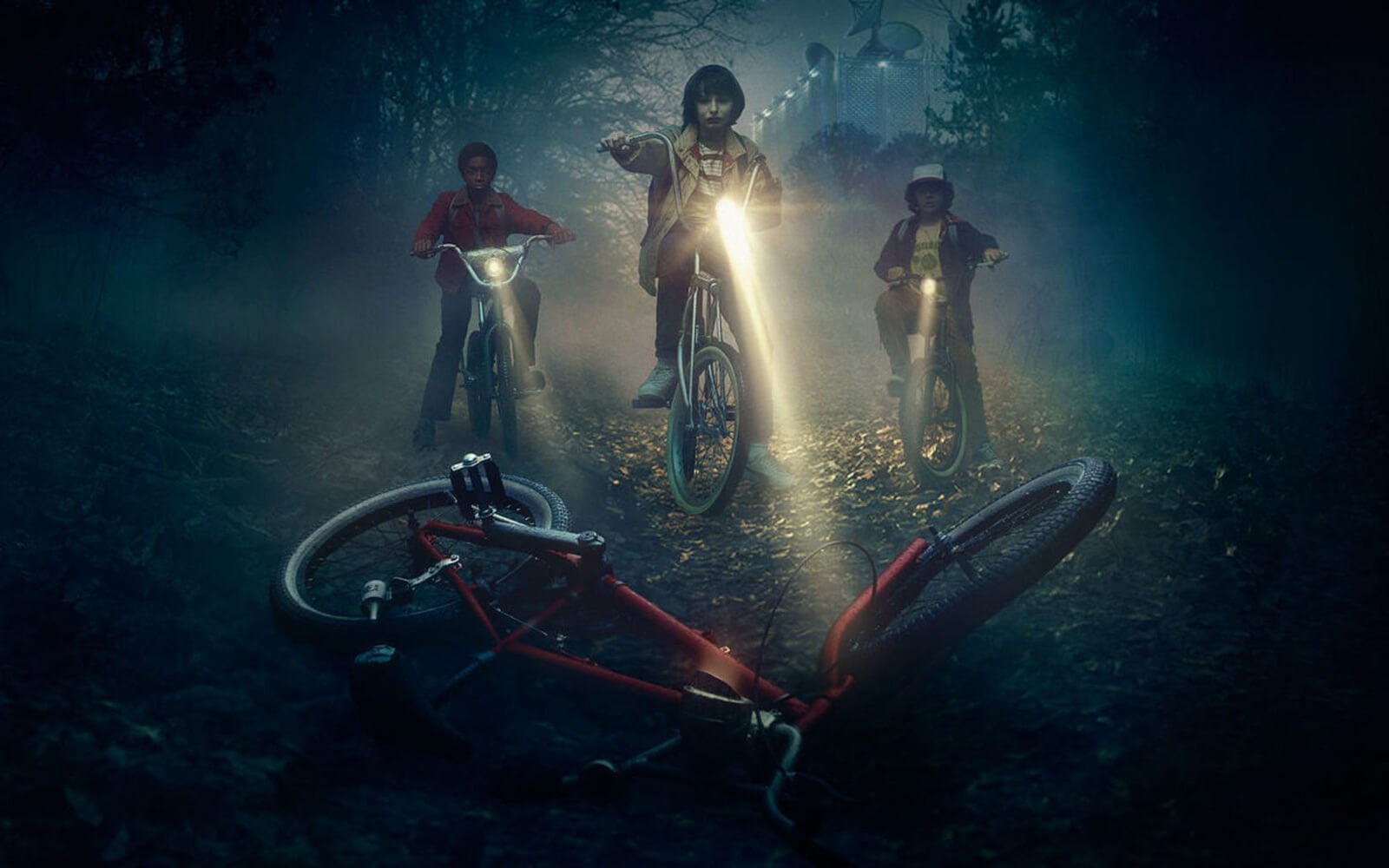I Think I’m Going to Need 4 Seasons of Stranger Things

After watching the first episode of Netflix’s new series, Stranger Things, I’m pretty sure that I’m going to need several seasons of the show.
Set in the 1983 in a sleepy Indiana town (that also happens to house a top secret government facility), Stranger Things begins with the abduction of a boy named Will Byers by… something. Something alien, perhaps? And could the abduction coincide with the ominous activities of ominous government agents at the aforementioned government facility and/or the appearance of a mysterious girl with telekinetic powers?
What do you think?
Stranger Things mines deeply from the vein of ’80s nostalgia, and not just due to its setting. Which, by the way, is perfectly realized in terms of casting, wardrobe, and even the way it’s filmed. But thematically and narratively, the show is a clear and obvious throwback to Steven Spielberg’s classic work like E.T. and Close Encounters of the Third Kind. (Heck, the show’s logo even looks like a Stephen King novel.)
And like classic Spielberg, Stranger Things — the first episode, anyway — adroitly juggles scares and laughs, from the creepy events that open the episode to the geekiness of Will Byers and his friends. The cast of characters is colorful, as well: Will Byers and his three friends are perfectly awkward, Dungeons & Dragons-loving nerds; the town’s sheriff initially comes off as a lout but grows more complex as the episode progresses; and Winona Ryder is appropriately manic as the missing boy’s mom. Even apparent bit characters, like a kindly restaurant owner or the boys’ dweeb-ish science teacher, seem fully realized even with their limited screen time. (In this regard, I was reminded of Freaks and Geeks, albeit if perhaps John Carpenter had created it.)
I’m writing this after only one episode, so Stranger Things could obviously still go off the rails in subsequent episodes. The plot could unravel and turn out to be a whole lot of Lost-like nothing. The ’80s devotion could become too slavish, the nostalgia too thick and constricting to let the show do anything original. But so far, I’m totally hooked. There’s nothing inherently wrong with invoking the past, and especially when it’s done as well as it is here.